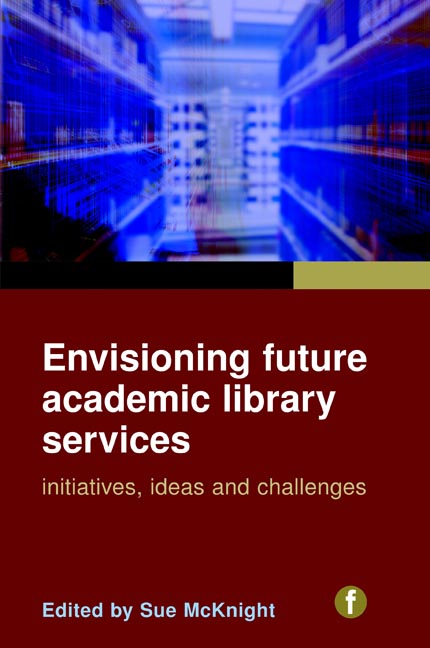Book contents
- Frontmatter
- Contents
- Foreword
- Contributors
- Introduction: We create the future!
- 1 Waiting for the barbarians: seeking solutions or awaiting answers?
- 2 The delete generation: how citizen-created content is transforming libraries
- 3 Libraries as places: challenges for the future
- 4 Web 2.0: redefining and extending the service commitment of the academic library
- 5 Second Life and libraries: boom or bust?
- 6 Some new business ideas in the HSS publishing space: what may librarians expect?
- 7 Loosely joined: the discovery and consumption of scholarly content in the digital era
- 8 Knowledge management, universities and libraries
- 9 Libraries and the management of research data
- 10 The leadership of the future
- 11 Adding value to learning and teaching
- 12 In search of the road ahead: the future of academic libraries in China
- Index
7 - Loosely joined: the discovery and consumption of scholarly content in the digital era
Published online by Cambridge University Press: 08 June 2018
- Frontmatter
- Contents
- Foreword
- Contributors
- Introduction: We create the future!
- 1 Waiting for the barbarians: seeking solutions or awaiting answers?
- 2 The delete generation: how citizen-created content is transforming libraries
- 3 Libraries as places: challenges for the future
- 4 Web 2.0: redefining and extending the service commitment of the academic library
- 5 Second Life and libraries: boom or bust?
- 6 Some new business ideas in the HSS publishing space: what may librarians expect?
- 7 Loosely joined: the discovery and consumption of scholarly content in the digital era
- 8 Knowledge management, universities and libraries
- 9 Libraries and the management of research data
- 10 The leadership of the future
- 11 Adding value to learning and teaching
- 12 In search of the road ahead: the future of academic libraries in China
- Index
Summary
Introduction
The library has been a focal point for innovation in digital services since the advent of micro-computing and, latterly, the web. Technology in the library is not new; nor are concerns about the role of technology in the library. However, the advent of the internet, the growth of social networks and the increasingly mobile nature of digital technologies pose new and important challenges and opportunities for academic libraries in how they manage the abundance of information and make it available.
Academic libraries are having to respond to the needs of a new generation of ‘digital natives’, who see access to social software as a basic human right, yet the need to preserve privacy, reliability and accountability remains fundamental to the sustainability of such institutions.
This chapter will explore the recent history of technological advances in the library and show how the early theoretical ‘memex’ system proposed by Vannevar Bush in 1945 (Bush, 1945) is only now becoming a reality, with the advent of cloud computing. It will show how the ability to link and access data, increased expectations, a shift to user-centred services and a change in how library space is used are leading to a fundamental restyling of libraries, to a point where Web 2.0 technologies are becoming central to their function rather than add-on facilities.
The concept of Library 2.0 is still not well formed, but it is providing a framework for understanding that adaptability and flexibility are essential to ensuring that academic libraries remain central to the learning experience, provide open access for users and protect and promote quality authorship.
Big, bigger, invisible!
It is commonly asserted that the digital era has brought new challenges and opportunities to the fore. However, problems of growth and the advancement of technology have been identified for some time. In his 1983 paper, James Thompson described the ‘End of Libraries’ and pointed to advances in micro-computing that then provoked anxiety, and questioned the purpose of the library and the role of the librarian in the electronic age.
- Type
- Chapter
- Information
- Envisioning Future Academic Library ServicesInitiatives, ideas and challenges, pp. 101 - 118Publisher: FacetPrint publication year: 2010



